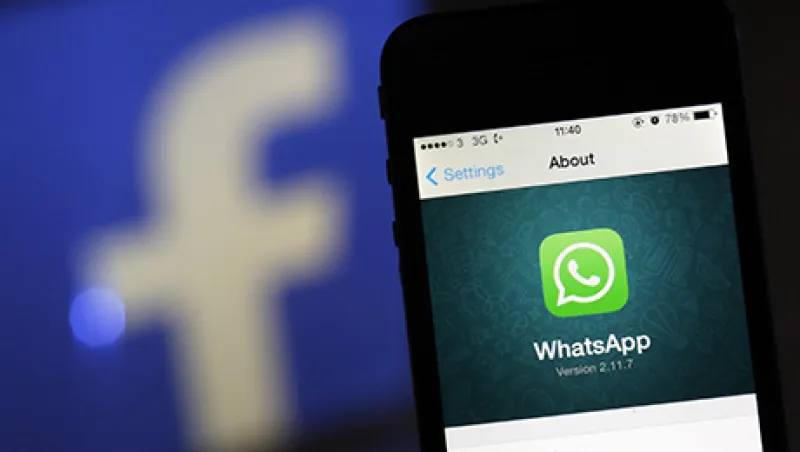
The WhatsApp Inc. mobile-messaging application WhatsApp is displayed on an Apple Inc. iPhone in this arranged photograph taken in London, U.K., on Thursday, Feb. 20, 2014. Facebook, the worldís largest social network, agreed to acquire mobile-messaging startup WhatsApp Inc. for as much as $19 billion in cash and stock, seeking to expand its reach among users on mobile devices. Photographer: Chris Ratcliffe/Bloomberg
Chris Ratcliffe/Bloomberg

